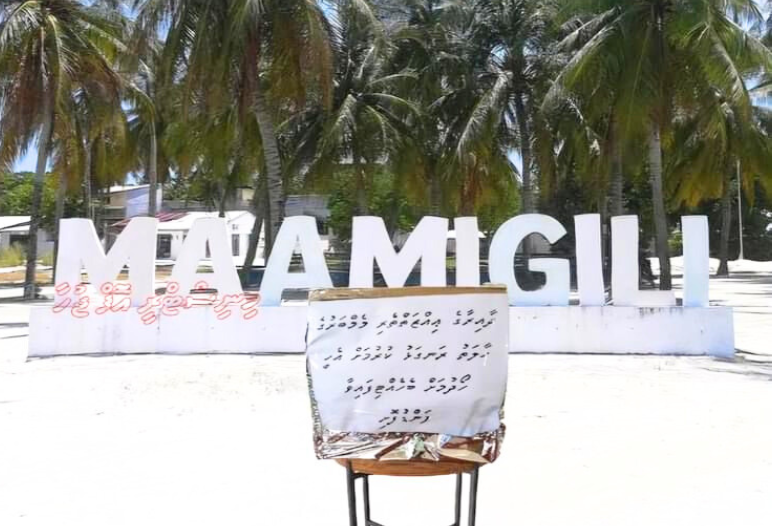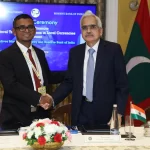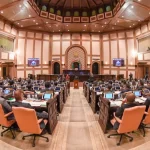Maamigili, Maldives — Against the backdrop of the debate on the economy, a humble donation box has been set up on the jetty of Adh. Maamigili, the home island of influential MP Gasim Ibrahim. This gesture by the islanders symbolizes the growing apprehension among Maldivians about the nation’s economic future.
In today’s parliamentary debates, MPs have been vocal about their dissatisfaction with their current salaries and allowances, sparking discussions about economic sustainability and governance. With a basic salary of MVR 42,500, supplemented by a MVR 20,000 living allowance and a MVR 20,000 committee allowance, many parliamentarians feel their compensation does not reflect their responsibilities or the cost of living in the Maldives. Their total monthly compensation amounts to MVR 82,500, which is approximately USD 5,350.
Mohammed Abbas, an MP from the Maldives Development Alliance (MDA), who is associated with MP Ahmed Siyam, one of the resort owner tycoons in the Majlis, pointed out the disparity between the salaries of MPs and those of other high-ranking government officials. “Before entering parliament, I was quite comfortable. But here, I don’t get the benefits, security, protection, and huge income people assume we do,” Abbas lamented.
Gasim Ibrahim, another prominent MP, argued that MPs are not compensated like other government employees and highlighted that the MVR 20,000 living allowance is insufficient for those who travel from different parts of the country to serve in parliament. “MPs are not entitled to money in any other way. Unlike heads of other state institutions and companies, we do not have alternative sources of income,” Gasim said.
The donation box in Maamigili reflects a community’s concern and solidarity amidst a broader economic context. Islanders are apprehensive about the diminishing state reserves and the potential economic downturn. This grassroots initiative underscores the local impact of national economic policies and the collective anxiety about the future.
The debate on MP salaries and the setup of the donation box both highlight the urgent need for a balanced approach to economic management in the Maldives. As the nation navigates these challenges, the voices from Maamigili remind us of the human dimension of economic policies and the resilience of local communities in the face of uncertainty.
The outcome of these discussions in parliament will not only affect the legislators but also set a precedent for how public sector compensation and economic sustainability are addressed in the Maldives. The islanders of Maamigili, through their symbolic gesture, have brought attention to the pressing need for fair and sustainable governance, as the nation looks to secure a stable and prosperous future for all its citizens.












